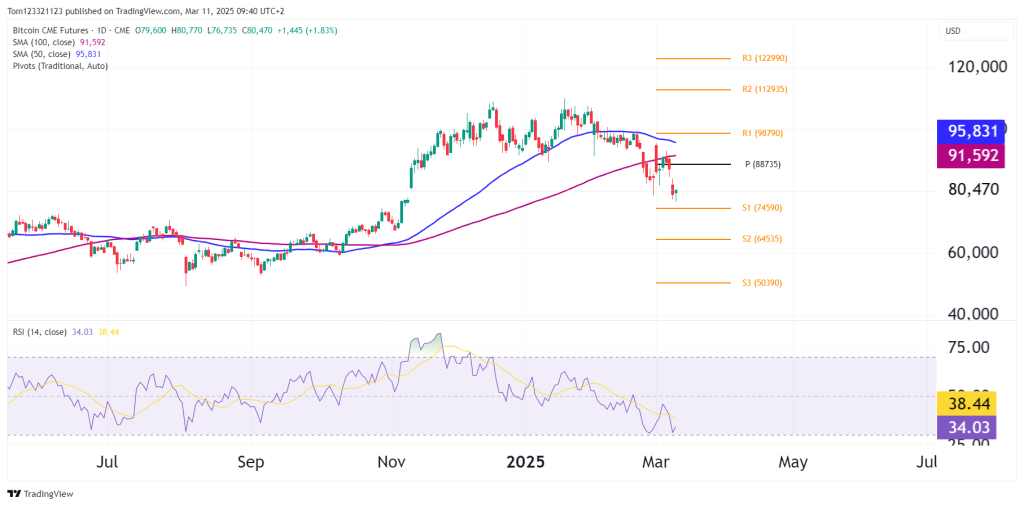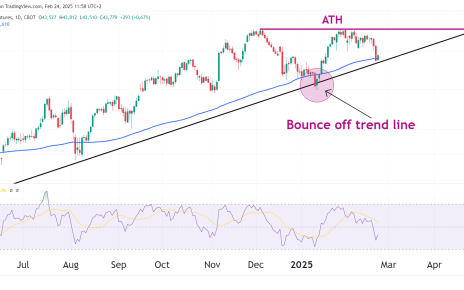Introduction
Bitcoin futures have extended their decline, currently trading at 80,470. The recent sell-off has pushed BTC below both the 50-day (95,831) and 100-day (91,592) moving averages, intensifying the bearish sentiment. The market remains under pressure as risk-off sentiment weighs on crypto assets.

Market Drivers & Crypto News Impacting Bitcoin
1. ETF Outflows and Institutional Selling
- Bitcoin ETF outflows have surged in the past week, with major funds seeing increased selling pressure. This is weighing on Bitcoin’s price, as institutional demand slows.
- Analysts note that Grayscale’s GBTC continues to experience redemptions, adding to market liquidity concerns.
2. Broader Risk-Off Sentiment in Markets
- Equity markets have pulled back sharply, leading to reduced risk appetite across all asset classes.
- With rising bond yields and a stronger USD (before its recent drop), Bitcoin has struggled.
3. Liquidity Concerns & Leveraged Positions Being Liquidated
- Bitcoin open interest has dropped, indicating long liquidations as price falls.
- Several overleveraged long positions have been wiped out, accelerating the decline.
4. Macroeconomic Uncertainty
- Upcoming U.S. inflation data could determine whether Bitcoin stabilizes or experiences further downside.
- Regulatory pressure on crypto firms is also contributing to weaker sentiment.
Potential Scenarios
Bullish Scenario
- If S1 (74,590) holds, Bitcoin could see a relief rally toward pivot resistance at 88,735.
- A break back above 91,592 (100-day SMA) would improve sentiment and attract buyers back into the market.
Bearish Scenario
- A close below 74,590 would likely trigger a move to S2 at 64,535, a level where stronger support exists.
- Failure to hold S2 could lead to a major drop to 50,390, where long-term buyers would likely step in.
Outlook Summary
- Short-Term (1-2 Weeks): Bearish bias, with a possibility of a short-term bounce from support levels.
- Medium-Term (1-3 Months): Bitcoin needs to reclaim key moving averages to shift back to bullish.
- Long-Term (6+ Months): The macro structure is still intact, but continued weakness in institutional demand could delay recovery.





